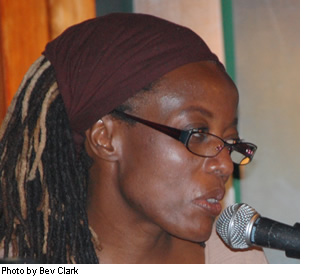On Friday 6 March, we sent a text message to over 5,000 subscribers, to let them know that Zimbabwe’s Prime Minister Morgan Tsvangirai and his wife Susan had been in a car crash that left him injured and Susan dead.
While Tsvangirai has publically stated that he believes the crash was a genuine accident, Zimbabwean politics has a long history of opposition leaders dying in car crashes. So it was unsurprising that the responses we received expressed a mixture of shock, grief, sympathy, and scepticism.
Of the 63 messages we received in response, 24 were from people seeking more information – asking questions like was it true, and could they have more details. 17 people sent text messages asking whether the “accident” was really an accident – or foul play. And 22 people sent their condolence messages to Morgan Tsvangirai and his family, in sympathy for his loss.
These are some of the messages we received:
Any chance of foul play?
——
D0 u think this iz a genuine ac-dnt?
——
Have these accidents start again. Very sorry that the prime minister lost his wife at this hour.
——
How can a driver fall asleep at 4pm the driver is a murderer and there is need for tight and reliable security around am sorry my sympathy 2 the Hon Prime Minister and his entire family . A lot of questions remain unanswered.
——
I felt angry with this sad news. I think its an assassination plot by Zanu PF
——
I mourn with the Tsvangirai family on the sad loss of Mrs Susan Tsvangirai. I was greatly disheartened by the news. The PM never walks alone for we are with him.
——
Its soro +shocking 2 learn Susan’s death. Its good 4M 2no we’re together
——
Its very sad. These are the works of ZANU PF. All opposition ministers must exercise extreme caution or otherwise Robert will wipe them off. Greatly disturbed.
——
My condolence msg to the Tsvangirais and may the PM recover in the soonest.
——
My deepest sympathy to the first family. Susan was a role model to both young and ladies.R.I.P.
——
Sad story. A clear sign of an attempt to kill him.
——
Sori to the Tsvangirai family and the whole nation. May the Lord have mercy to her soul.
——
Strange accident cumz soon afta Politburo mtng. ZPF’s done it. If they killed Manyika & others of their own wat can stop them killing Morgi – a thorn in their flesh?
——
We convey our heart felt condolences to MTand family on his sad loss. We hope that God gives them fortitude at the moment of their extreame grief and pain
——
We receive this news with great shock
The Prime Minister’s office is also accepting condolence messages on their website



 Pamberi Trust hosted a literary discussion last night, on theme “Is writing craft or emotion?” The panelsits were Zimbabwean authors
Pamberi Trust hosted a literary discussion last night, on theme “Is writing craft or emotion?” The panelsits were Zimbabwean authors 






